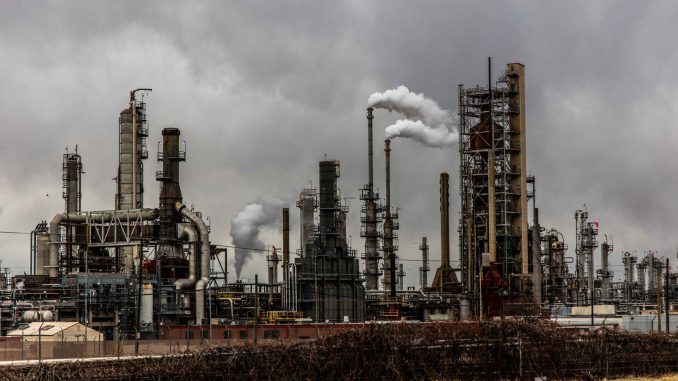
As time passes, we hear more and more often about laws banning specific types of cars, as well as an increased push for so called “green cars”. This article is a closer look to what oil companies and car manufacturers are doing to prepare for the future.
Artículo disponible en Español | Article disponible en Français
As years go by, new rules are enacted, making it harder to sell polluting cars. In the European Union, these rules are known as the “EURO” emissions standard, ranging from EURO 1 to EURO 6, EURO 6 being the strictest right now. To survive and continue selling vehicles, car manufacturers are forced to develop new, more efficient and less polluting engines, which can easily end up adding a premium on the car itself. The popularization of electric and hydrogen cars is an alternative many manufacturers have been looking at over the past decade, with some of them testing various models of electric vehicles as well as hybrids.
But there are still challenges to properly monitor and implement the EURO emissions standard, with cases such as “Dieselgate”, where some manufacturers cheated on emissions tests, as well as differences in emissions between lab tests and real-world usage.
The most well-known electric car manufacturer is probably the American company Tesla, who is constantly on the news for both good and bad reasons, even if lately there has been mainly bad news coming from them. But in terms of volume, Chinese manufacturer BYD is the largest company, followed by Renault-Nissan, whose Nissan Leaf is currently the most sold electric car ever, at over 300K units sold since launching. Renault’s ZOE is also rather popular in some markets in Europe, with 1 out 4 electric cars sold in Europe being a ZOE.
While Tesla fails to meet their production targets (well, they recently hit one of them… once) and its CEO Elon Musk keeps blaming the traditional car manufacturers and oil companies for Tesla’s failures, these ones are getting ready, starting with French manufacturer Renault. Renault recently announced various investments in France, for the period of 2017 to 2022, for a total value of 1 billion euros, as well as hiring 5 000 extra employees. Following this announcement, unions weren’t happy, as around 5 000 employees will retire during the same period of time, so there won’t be a real job creation, and some positions will disappear while new ones will be created. The goal is to double the production of the ZOE model and triple the production of electric engines, to face the growing demand of electric vehicles from the consumer. Since last year, Renault faced a 38% growth rate in the sales of its electric vehicles, with the ZOE model growing by 44%. Renault will also be launching new models over the next few years, diversifying their offering of electric vehicles.
Other manufacturers such as Volvo or Audi are looking at their factories in Belgium to start producing new electric vehicles in Europe, while last year BMW reached 100K electric vehicles sold. Finally, Porsche is finalizing the development of it’s “Mission E” vehicle, now named Porsche Taycan. Porsche has specified they are not trying to compete against anybody in particular but their vehicle will challenge Tesla’s more expensive offerings.
If we now have a look at Tesla and Musk’s favourite second enemy who wants their failure, “the oil companies”, these ones, ironically, seem to be doing rather well and even… helping in the popularization of the electric car? As per usual, if there’s money to be made, some companies won’t mind selling anything and everything. Which is what BP (British Petroleum) and Shell seem to be doing.
Tesla recently announced they now had 3 200 Superchargers spread across 400 sites in Europe. At the same time, British Petroleum (BP) announced they would be buying Chargemaster, UK’s largest electric car charging network, for a total of 130 million £ (around 150 million euros). Chargemaster currently has 6 500 charging points in the United Kingdom and plans to add a further 1 000 by the end of the year. With this acquisition, BP intends to equip all its petrol stations with electric car chargers, meaning some 1 200 petrol stations across the country will be able to serve both traditional petrol cars and electric vehicles. This strategy is quite interesting, as it means both types of customers will have to stop by BP’s stations. On top of investing in car chargers, BP has been heavily investing in renewables energy, such as wind or solar.
But BP was not the first oil company to start offering charging points for electric cars. It’s Shell (Royal Dutch Shell) who was the first to make a move of this kind, by buying at the end of last year a Dutch-based company called “NewMotion”. NewMotion is owner of one of Europe’s largest charging networks, with over 30 000 charging points. Shell also installed chargers in 10 of its 1 000 petrol stations in the UK, as a test. The company will also be installing hydrogen pumps in some places in the UK to cater to the small market of hydrogen vehicles. The irony behind Shell’s charging points is the price they ask: whether electric or not, the prices are similar, with a ZOE model costing around 20£ to recharge, while a Tesla will cost 50£ to recharge. This is nearly as much as it costs to refuel a more traditional petrol car.
Overall, if anything, traditional car manufacturers and oil companies have been trying to keep up with the market. Sure, electric cars don’t have the same range as diesel/petrol cars have (yet), but most of what is already available on the market is quite decent, with Renault’s ZOE being enough for a regular European living and working in the city. Oil companies, between BP and Shell, seem to be going quite far to convince regular customers to switch to electric vehicles, and their push in charging points could help in this move, as the main thing holding back electric vehicles right now is the lack of charging points in many locations. In some cities, there may only be one or two charging points, such as at the supermarket or some other big store, meaning most regular drivers aren’t interested in having to drive that far for so little.
Finally, many companies and people constantly talk of how we should all switch to electric/hydrogen vehicles, while the reality is that we cannot continue having one car per person. Whether citizens like it or not, in a near future, many of us will have to ditch the car and use public transport or bikes, to free up some space in the clogged cities, reduce consumption of resources and pollution overall. It is true that, in many places, even big, modern capitals such as Brussels, public transport isn’t yet the best, with reliability issues, not enough coverage in some areas and not enough space during peak hours, but once these issues are fixed, there will be no excuse for people to keep owning and driving cars the same way we do now. That seems something quite a lot of drivers don’t want to accept: whether they drive a “green” vehicle or not, they are still using resources and still are part of the problem. Especially Tesla, seeing how big their vehicles are. Good luck parking that in current and future busy metropoles.
The future is obviously not just public transport. Those who need a car will still use it, and car sharing is being tested on a large scale in various places, such as in Paris, where Renault intends to put some 2 000 ZOE’s on the streets to push people to borrow them and share them rather than use their own vehicle, even if this requires citizens to be more responsible, which, sadly enough, many aren’t.
More on this subject:


